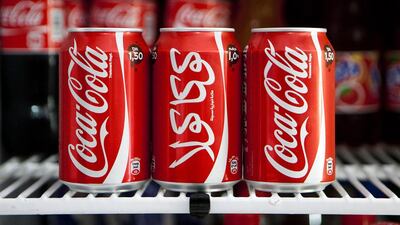The UAE, which plans to introduce value added tax (VAT) next year alongside the other five GCC countries, could generate up to Dh20 billion in revenue from the levy in its second year of implementation, according to the Minister of Economy.
"VAT is expected to yield Dh12bn in the first year of its implementation and up to Dh20bn during the second year," Sultan Al Mansouri said in an emailed response to questions from The National.
Gulf countries are planning to generate non-oil income from new sources such as VAT to help deal with the low oil price era.
They began taking initiatives in 2015 to boost non-oil revenue by liberalising the way fuel prices are set, and raising electricity and water tariffs. Higher taxes on tobacco and new levies on other goods such as sugary soft drinks are also planned.
According to professional services company PricewaterhouseCoopers, the introduction of VAT will help governments in the region “deliver on long-standing plans for economic diversification away from oil, while still being able to deliver social and economic programmes”.
The UAE Cabinet last year approved a Dh248bn federal budget for the next five years, with a prime focus on education, social development and health, as the country bucks the regional purse-tightening trend. For 2017, expenditure is projected at Dh48.7bn, leaving a negligible deficit.
“Reducing dependence on oil revenues, finding other sources of income, rationalising current spending and enhancing investments in strategic sectors and projects are predicted to bring further growth for the non-oil sectors, which are forecast to reach 4.6 per cent by 2020,” the minister said. The proposed GCC-wide VAT is expected to be set at 5 per cent and include various exemptions for food and basic items.
The IMF has argued that introducing VAT at a low rate could generate 1.5 to 2 per cent more GDP for the Gulf states.
The fund said in October 2015 that the Gulf states would have a combined fiscal deficit of between 2015 and 2019 that would exceed US$700bn if they did not undertake reforms.
Since then, several countries have cut energy subsidies, trimmed spending and talked about taxes and privatisation to shore up government revenue.
More than two-thirds of senior business figures in the UAE believe reforms such as cutting fuel subsidies and the introduction of duties such as VAT are necessary to boost development in the region.
Research conducted exclusively for The National by Borderless Access found that 69 per cent of respondents in the UAE and 66 per cent in Saudi Arabia felt that subsidy cuts and the introduction of VAT would help regional development.
Mathias Angonin, lead analyst for the UAE at Moody’s, said the ratings agency views both moves as “credit positive”. It has estimated that the UAE’s removal of fuel subsidies added 0.7 per cent of GDP to fiscal revenue.
dalsaadi@thenational.ae
Follow The National's Business section on Twitter

